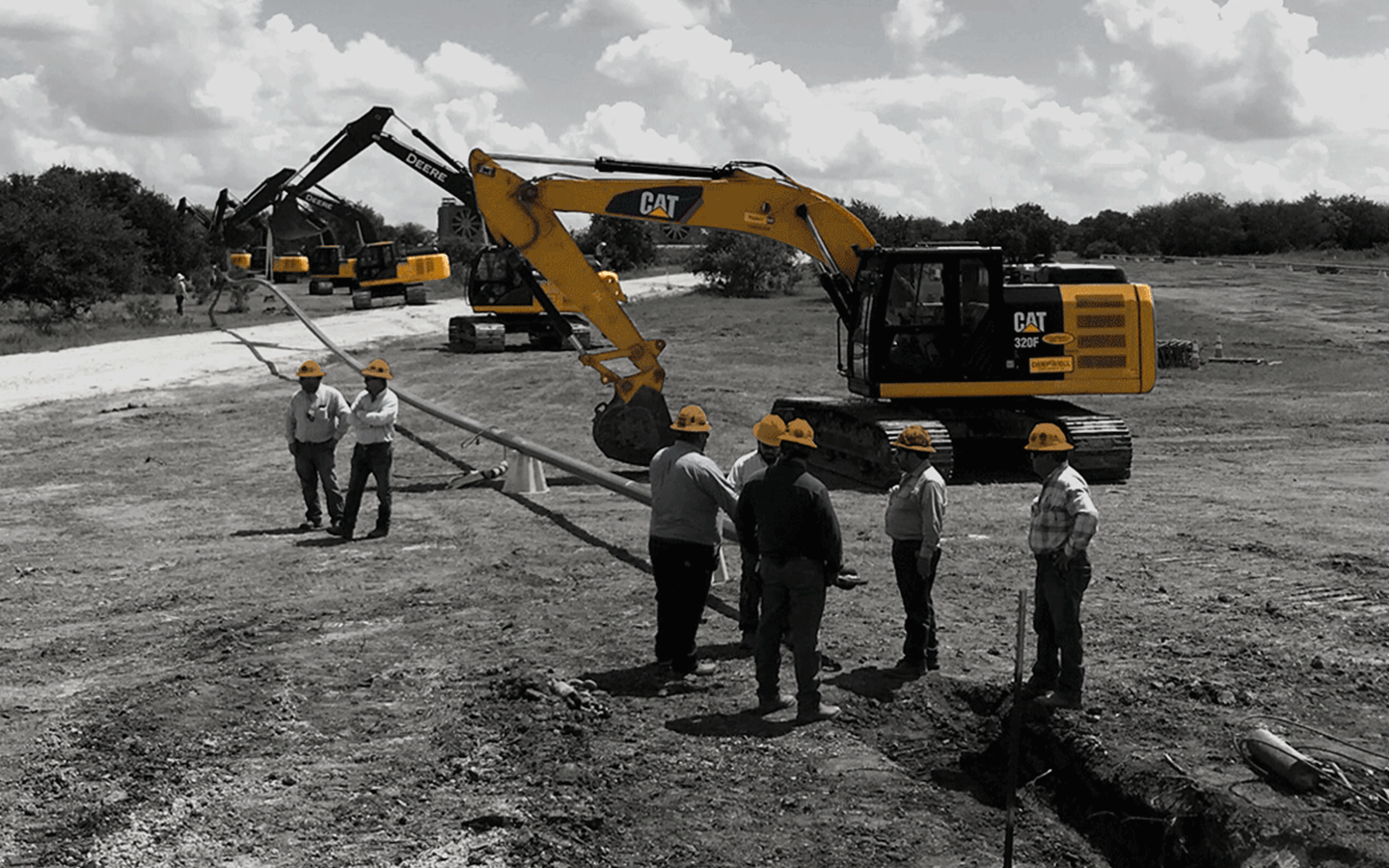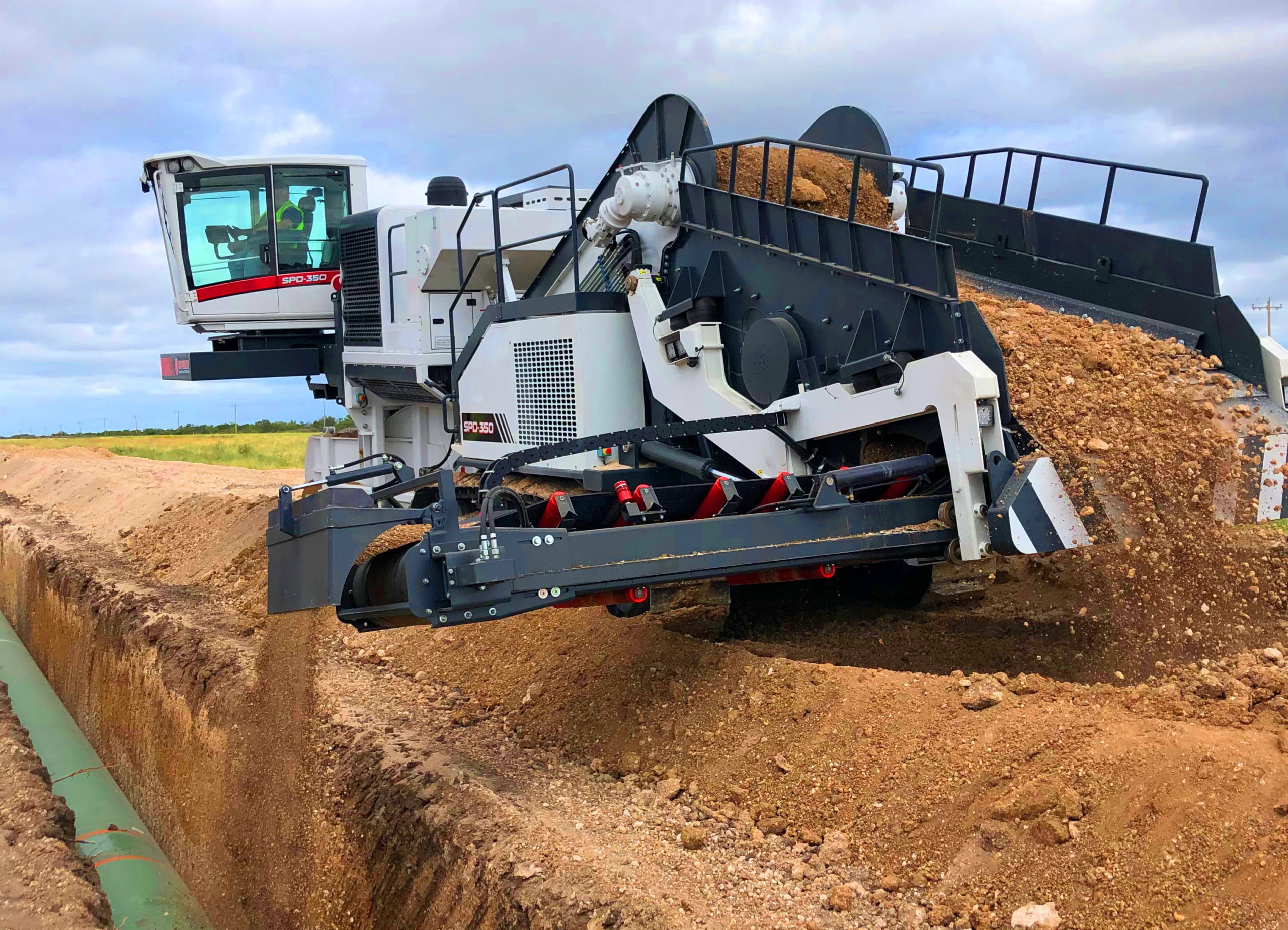Superior Rentals fusion machines: how they work for energy infrastructure
Wiki Article
A Comprehensive Overview to the Numerous Kinds of Oil Field Equipment and Pipeline Equipment Available
The oil and gas market depends heavily on specific equipment for reliable extraction and transportation. Numerous kinds of machinery, from piercing rigs to tank, play important roles in this complex process. Each item of tools offers distinct features that add to total functional success. Understanding these components is important for anybody associated with the sector. As the market develops, so too do the modern technologies that support it. What improvements are on the horizon?
Drilling Rigs: The Foundation of Oil Expedition
Drilling rigs act as the vital machinery in the domain name of oil exploration, allowing companies to accessibility hydrocarbon books buried deep beneath the Planet's surface area. These rigs are available in numerous kinds, consisting of land rigs, offshore rigs, and mobile devices, each made to run in details settings. Furnished with innovative technology, drilling rigs can pass through geological developments with precision, making certain reliable resource removal. The architectural honesty and operational capabilities of these rigs are vital, as they need to stand up to severe conditions and significant pressures. The choice of a boring rig affects the general project cost and timeline, making it a crucial consideration for oil companies looking for to maximize their expedition initiatives and make best use of efficiency in their procedures.Pumps: Important for Liquid Motion
In the oil removal procedure, the duty of pumps is considerable, helping with the motion of liquids throughout various phases of production. Pumps are crucial for carrying crude oil, water, and various other liquids from underground tanks to the surface area and after that through pipelines to refineries. They come in different types, including centrifugal, favorable displacement, and completely submersible pumps, each serving specific objectives based upon the liquid features and functional needs. Centrifugal pumps are generally made use of for their performance in high-flow applications, while favorable displacement pumps succeed in managing viscous liquids. The choice of pump impacts overall efficiency, operational safety, and maintenance expenses. Correct selection and maintenance of pumps are important for maximizing production and decreasing downtime in oil field operations.Valves: Controlling Flow and Pressure

Shutoffs play a crucial role in managing the flow and stress of liquids within oil areas and pipes. Different sorts of valves offer distinct applications, each created to satisfy particular features fundamental for efficient procedure - Superior Rentals Contact. Recognizing the qualities and uses these shutoffs is vital for optimizing system performance and safety
Kinds of Valves
Important elements in oil field operations, valves play an important role in managing the flow and stress of liquids within pipes and tools. Different sorts of shutoffs are utilized to meet the varied demands of oil and gas production. Common kinds include gateway valves, which supply a straight-line circulation and very little pressure decrease; globe shutoffs, recognized for their strangling capacities; and ball shutoffs, identified for their quick on/off control. In addition, check valves protect against backflow, while butterfly shutoffs use a lightweight remedy for controling flow. Each shutoff kind is created with specific products and setups to stand up to the severe problems commonly found in oil areas, ensuring dependability and efficiency in operations. Comprehending these kinds is vital for efficient system administration.Valve Applications and Features
While different kinds of valves offer unique objectives, their key applications rotate around controlling flow and stress within oil and gas systems. Valves such as gateway, world, and round valves regulate fluid activity, making sure peak performance and safety and security. Entrance valves are generally used for on/off control, giving minimal flow resistance. Globe valves, on the various other hand, offer specific circulation regulation, making them ideal for strangling applications. Round shutoffs are preferred for their quick operation and tight sealing capabilities. Additionally, stress relief shutoffs are important for avoiding system overpressure, safeguarding equipment integrity. On the whole, the suitable choice and application of shutoffs improve functional performance, guaranteeing the trustworthy transportation of oil and gas with pipelines and handling centers.Compressors: Enhancing Gas Transport
Compressors play a vital function in the reliable transport of gas, making sure that it moves efficiently via pipes over fars away. These devices boost the stress of gas, enabling it to get over rubbing and elevation modifications within the pipeline system. Furthermore, compressors assist in the harmonizing of supply and need, fitting variations in intake and manufacturing rates. Different types of compressors are employed in the market, consisting of centrifugal, reciprocating, and rotating screw compressors, each offering distinct benefits based upon the functional requirements. Regular upkeep of these compressors is necessary to take full advantage of effectiveness and minimize downtime, inevitably adding to a reliable gas transportation network. Their crucial feature underscores the value of compressors in the total oil and gas facilities.Storage Tanks: Safe and Effective Fluid Management
Efficient transportation of gas counts on numerous sustaining systems, among which is the proper monitoring of tank. These tanks play an important function in safely containing liquids, making sure that functional performance is maintained while minimizing environmental dangers. Created from sturdy products, they are created to endure high stress and harsh components. Appropriately sized and purposefully located, tank assist in the smooth circulation of gas and various other fluids, protecting against traffic jams in supply chains. Regular upkeep and surveillance are crucial to find leakages or structural problems, promoting safety and conformity with regulatory requirements. Eventually, the efficient monitoring of tank is important for the overall integrity and integrity of the oil and gas market's fluid handling systems.
Pipeline Solutions: Infrastructure for Transport
Pipeline systems work as the foundation of the oil and gas sector, facilitating the efficient transportation of hydrocarbons over substantial distances. These systems include different components, including pipelines, valves, pumps, and compressors, all diligently developed to assure seamless flow. The materials utilized in pipeline construction, often steel or high-density polyethylene, are selected for longevity and resistance to rust. Pipeline networks can cover across land and water, attaching production sites to refineries and warehouse. In addition, progressed technology enables real-time monitoring of flow rates and stress levels, enhancing functional performance. The strategic placement of these pipelines minimizes ecological impact while making the most of source ease of access, consequently playing a necessary function in meeting energy needs worldwide.Safety And Security Equipment: Making Sure Worker and Environmental Protection
The procedure of pipeline systems, while necessary for power transport, likewise provides substantial safety and security difficulties for workers and the atmosphere. Security devices plays a substantial duty in mitigating these dangers. Individual protective equipment (PPE) such as safety helmets, handwear covers, and non-slip footwear safeguards workers from physical threats. In addition, gas detection systems check for leaks, ensuring that damaging substances do not posture a threat to personnel or the bordering environment. Emergency shutdown systems are necessary for promptly stopping procedures throughout a situation, stopping possible disasters. Spill control materials, including absorbents and barriers, are basic for lessening environmental impact. Generally, spending in all-encompassing security equipment is critical for maintaining operational stability and protecting both employees and the atmosphere in the oil and gas field.
Regularly Asked Concerns
Exactly how Do I Choose the Right Oil Field Equipment for My Job?
Choosing the ideal oil area equipment entails reviewing task specifications, budget plan restraints, and functional needs. Consider aspects such as tools reliability, compatibility with existing systems, and the provider's credibility to ensure peak performance and safety.What Are the Maintenance Needs for Oil Field Equipment?
Upkeep demands for oil field tools include regular inspections, lubrication, and timely repair services. Operators needs to likewise comply with manufacturer guidelines, monitor performance metrics, and guarantee compliance with safety guidelines to boost longevity and effectiveness.
How Can I Make Certain Compliance With Environmental Laws?
To ensure compliance with ecological regulations, companies must carry out regular audits, implement finest practices, invest in training, preserve appropriate check here documents, and stay upgraded on regulations (Superior Oilfield pipeline equipment rentals). Collaboration with ecological firms can likewise improve adherence to policiesWhat Is the Average Lifespan of Pipeline Equipment?
The ordinary life expectancy of pipeline equipment typically varies from 20 to 50 years, relying on aspects such as material high quality, ecological problems, and upkeep techniques. Normal evaluations can significantly influence longevity and functional efficiency.Exactly how Do I Securely Transfer Oil Field Equipment to Remote Locations?
Transferring oil field devices to remote locations requires careful planning, consisting of path analysis, securing permits, using proper cars, and ensuring security methods are complied with. Correct training and communication among staffs are necessary for successful transport.Report this wiki page